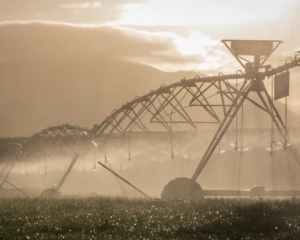
Flock numbers have dropped and farmers are choosing to leave the industry due to government policy pushing free-range and colony eggs, and supermarkets gearing up to stop selling eggs from caged hens.
Foodstuffs, which operates New World and Pak'nSave stores, will stop stocking cage eggs, including colony eggs, by 2027.
Countdown stores in the North Island will not stock cage eggs from 2024.
Tauranga Community Foodbank manager Nicki Goodwin said she had received an email from wholesaler Gilmours warning her the price of eggs was set to rise and a shortage was looming, as egg farmers worked to meet law changes.
She said the foodbank team had known for more than a year that changes in the industry would affect the number of eggs they could afford and would be available.
Previously, they had been giving out 45,000 eggs a year but the number had recently dropped to 35,000.
"Every cent the price [of eggs] goes up, the more people in need it will affect."
Dry Dock cafe owner Sandra Johnson said it would be a disaster for hospitality if there was a noticeable shortage of eggs.
She said her cafe used a lot of free-range eggs and had noticed a price increase in the past year.
"We go through about six to seven trays a day."
Someone who would not be facing a shortage was Welcome Bay resident Lorilee de Jong.
She has 10 free-range chickens on her property and sells their eggs to the community.
She said they always sold out within a day and many customers commented how impressed they were at supermarkets getting rid of caged eggs.
Changes to the Animal Welfare Code of Practice were first announced in December 2012, which meant farmers were required to transition their hens in cages to large colony enclosures with fewer animals and space to move around by 2022.
Colony eggs refer to large pens that can house up to 60 hens and allow the birds to perch, use scratching pads and have separate nesting areas.
Egg Producers Federation said about 40 per cent of the country's conventional hen cages, which housed almost all of New Zealand's commercial egg supply, were required to be upgraded to colony cages at the end of last year due to the age of the cages.
The federation said it would cost egg farmers between $660,000 and $8.5 million to meet mandatory changes to the enclosures.
Executive director Michael Brooks said there would be an ebb and flow of egg supply as national flock numbers dropped.
The transition of farming systems had forced many farmers to leave the industry, due to the complexity and cost of new regulations and the availability and cost of land suitable for free-range farming.
Sue Hamilton from Foodstuffs NZ said their Gilmours brand earlier this week informed their wholesale customers that caged eggs were being phased out in accordance with the new legislation, which worried some retailers.
However, she said they were working to mitigate any shortage and people did "not need to worry about cutting back on their favourite scrambled or eggs bene".
Comments
Ditch Free Range. Free Range eggs is trying to buy salvation. Absolution. The egg businesses are participating in this corruption. The ancient corruption of the church led to the reformation. Martin Luther nailed his thesis to the wall, and mayhem began. For a thousand years. We ended up with the separation of church and state. Nevertheless, standard old eggs are yummy as. If you feel guilty, go to confession, or donate some of your time to a worthy cause. With the breakdown in society and the rise of depression and meaninglessness in people, I suggest that there are more important things in our lives than chickens. Perhaps your family, your lover, your dog, your community. Not chickens.











